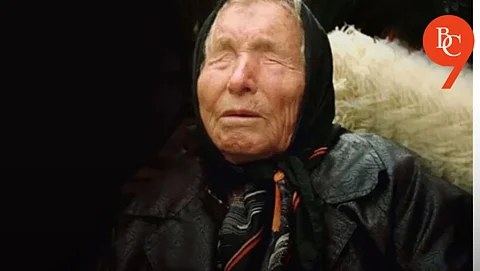

India is witnessing a fresh spike in COVID-19 cases, reviving not just memories of the 2020 pandemic but also a chilling prophecy that has gone viral on social media. The prediction, attributed to Japanese manga artist and writer Ryo Tatsuki, often called the “Japanese Baba Vanga” warns of a far deadlier resurgence of the coronavirus in 2030. As health officials scramble to contain the current uptick, the resurfacing of this decades-old forecast is adding a layer of anxiety and speculation to an already tense public mood.
Ryo Tatsuki, known for her 1999 book The Future as I See It, recorded a series of visions she claimed came to her in dreams. Among them was a prediction that an “unknown virus will come in 2020, will disappear after peaking in April, and appear again 10 years later.” Many now believe this was an uncanny reference to the COVID-19 pandemic and its possible return in 2030, with even greater devastation.
Tatsuki’s book also included predictions about other major global events, some of which followers claim have come true, further fueling the viral spread of her COVID prophecy as cases rise in India.
India’s COVID-19 cases are once again on the rise, with cities like Delhi, Chennai, Mumbai, and Ahmedabad reporting notable increases. According to the Union Health Ministry, as of late May 2025, the country had 2,710 active cases, with Kerala, Maharashtra, and Delhi among the hardest hit. The emergence of new variants, such as JN.1, has prompted health officials to issue fresh advisories and step up monitoring of hospitals and public spaces.
Amid this backdrop, Tatsuki’s prophecy about a catastrophic return in 2030 has resurfaced, spreading rapidly across social media and news platforms. For many, the eerie accuracy of her 2020 prediction lends weight to her warning about the future, even as others urge caution against panic and misinformation.
The resurfacing of the prophecy has triggered a mix of fear and skepticism. While some see it as a reason to remain vigilant and bolster public health measures, others warn against letting superstition overshadow science. The scars of the 2020 pandemic marked by lockdowns, overwhelmed hospitals, and widespread grief remain fresh, making the idea of an even deadlier wave especially unsettling for many Indians.
Public health officials continue to stress the importance of science-based vigilance over fear-driven speculation. Vaccination drives, mask mandates in high-risk areas, and enhanced surveillance of new variants remain the primary tools in the fight against COVID-19. “While prophecies may capture the public imagination, our best defense remains timely vaccination, public awareness, and adherence to health guidelines,” a senior health official stated.
